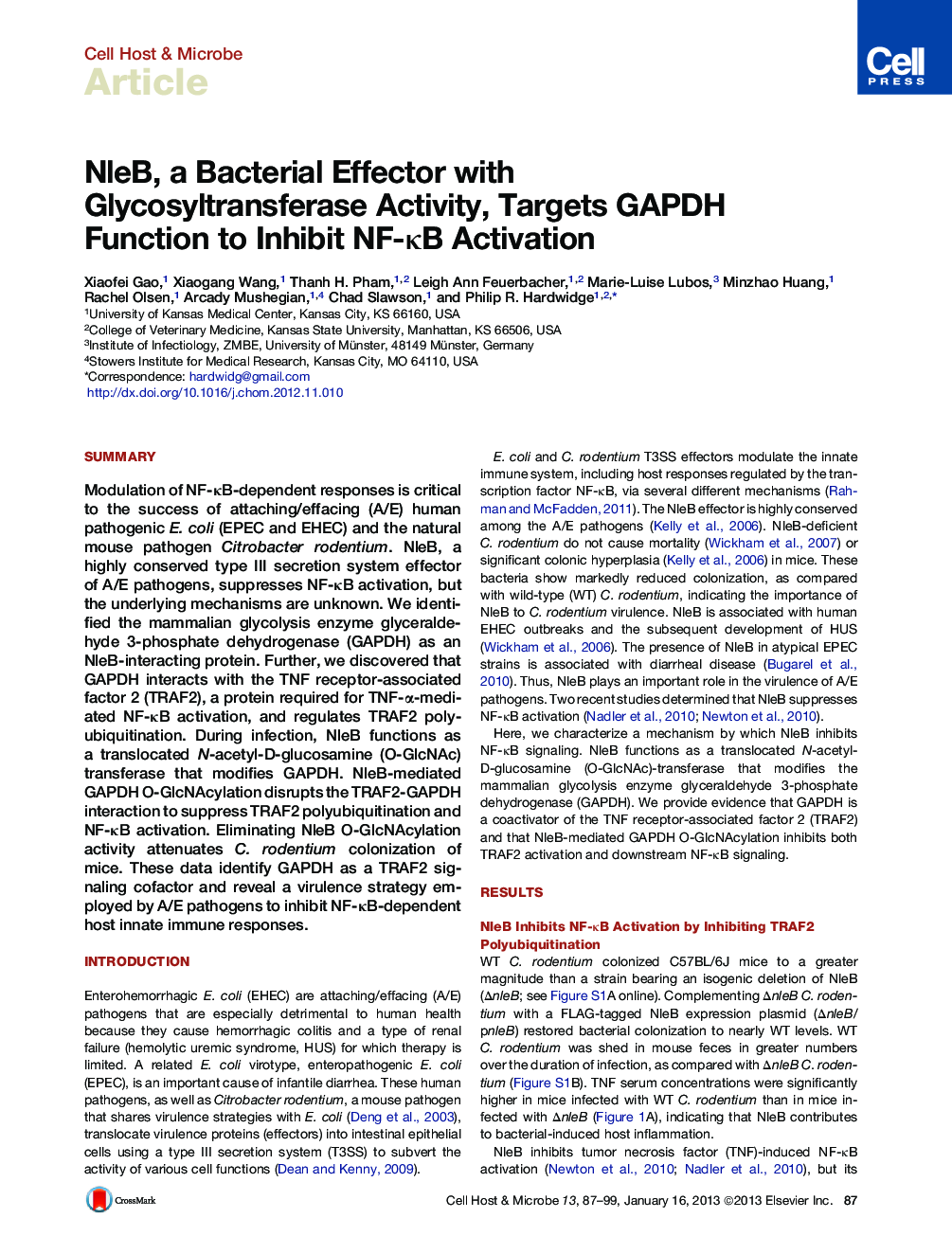| کد مقاله | کد نشریه | سال انتشار | مقاله انگلیسی | نسخه تمام متن |
|---|---|---|---|---|
| 4361267 | 1301365 | 2013 | 13 صفحه PDF | دانلود رایگان |

SummaryModulation of NF-κB-dependent responses is critical to the success of attaching/effacing (A/E) human pathogenic E. coli (EPEC and EHEC) and the natural mouse pathogen Citrobacter rodentium. NleB, a highly conserved type III secretion system effector of A/E pathogens, suppresses NF-κB activation, but the underlying mechanisms are unknown. We identified the mammalian glycolysis enzyme glyceraldehyde 3-phosphate dehydrogenase (GAPDH) as an NleB-interacting protein. Further, we discovered that GAPDH interacts with the TNF receptor-associated factor 2 (TRAF2), a protein required for TNF-α-mediated NF-κB activation, and regulates TRAF2 polyubiquitination. During infection, NleB functions as a translocated N-acetyl-D-glucosamine (O-GlcNAc) transferase that modifies GAPDH. NleB-mediated GAPDH O-GlcNAcylation disrupts the TRAF2-GAPDH interaction to suppress TRAF2 polyubiquitination and NF-κB activation. Eliminating NleB O-GlcNAcylation activity attenuates C. rodentium colonization of mice. These data identify GAPDH as a TRAF2 signaling cofactor and reveal a virulence strategy employed by A/E pathogens to inhibit NF-κB-dependent host innate immune responses.
► The glycolysis enzyme GAPDH interacts with the TNF receptor-associated factor, TRAF2
► The C. rodentium and E. coli virulence effector NleB binds GAPDH
► NleB uses its N-acetyl-D-glucosamine (O-GlcNAc) transferase activity to modify GAPDH
► O-GlcNAcylation of GAPDH disrupts TRAF2-GAPDH complexes and attenuates NF-κB signaling
Journal: - Volume 13, Issue 1, 16 January 2013, Pages 87–99